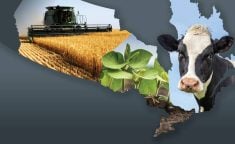The impact of COVID-19’s second wave is continuing to cause uncertainty in global markets.
According to the World Trade Organization (WTO), between October 2019 and May 2020, G20 economies implemented 154 new trade or related measures, finding 95 to be trade facilitating and 59 as trade restrictive.
“In the early stages of the pandemic, several of the measures introduced by G20 economies restricted the free flow of trade, principally for exports. But as of mid-May 2020, 70 per cent of all COVID-19-related measures were trade facilitating,” reads the WTO’s latest G20 trade report.
Read Also

Mazergroup’s Bob Mazer dies
Mazergroup’s Bob Mazer, who helped grow his family’s company into a string of farm equipment dealerships and the main dealer for New Holland machinery in Saskatchewan and Manitoba, died July 6 from cancer.
In its own latest note on trade, the Canadian Agri-Food Trade Alliance (CAFTA) is warning protectionist policies threaten to “exacerbate food insecurity, weaken the resilience of supply chains, lead to price spikes and other negative consequences.”
To counter the growing prevalence of nationalistic policies, Canada is leading supportive countries in a WTO reform effort known as the Ottawa Group. Alongside like-minded nations, Canada is lobbying other nations to halt introducing new non-tariff trade barriers, like unfair phytosanitary conditions or discriminatory rules of origin.
During recent meetings, the group focused on ensuring transparency when restrictions are put in place and called for broad information sharing. As part of a June declaration, the group included open and predictable agricultural and agri-food trade as one of its six key action items to help COVID-19 recovery efforts.
CAFTA is supporting the emphasis on the timely notifications of trade measures and transparency.
“In times of crisis, countries have demonstrated an ability to share and provide information and notifications of measures adopted in response to the pandemic in a relatively timely, transparent manner. Such practices should remain in place and be made permanent to increase the transparency and timeliness of notifications for sanitary and phytosanitary as well as other technical measures that affect agricultural trade,” said CAFTA in a statement. “This timeliness and co-operation should also be extended to sharing information on the justification for such measures as well as working together on other potential solutions to manage risks without blocking trade.”
CAFTA also recently wrote a letter to federal ministers over ongoing concerns with the Comprehensive Economic and Trade Agreement (CETA) between Canada and the European Union, writing agri-food exporters are “gravely concerned” the EU is not respecting the spirit of commitments made in the agreement.
“The need to resolve these issues couldn’t be more urgent, especially as the federal government remains focused on combating the spread of COVID-19 while protecting the economy,” read the letter.
A September meeting of the CETA Agricultural Committee aimed to address some of the trade irritants. Country-of-origin labelling and veterinary medicinal regulation were listed as issues being raised by Canada.
Those meetings saw both parties note work needs to be done before the benefits of CETA can be fully realized.
The issue of beef and pork was raised at the meeting, with both sides agreeing the main reason pork and beef quotas remain unfulfilled is due to a lack of Canadian supply meeting the EU’s sanitary and import requirements. Canada also raised concern over the EU’s approach to assessing plant protection products and the decline of durum wheat exports to Italy since a decision was made to adopt country-of-origin labelling in 2017.




















